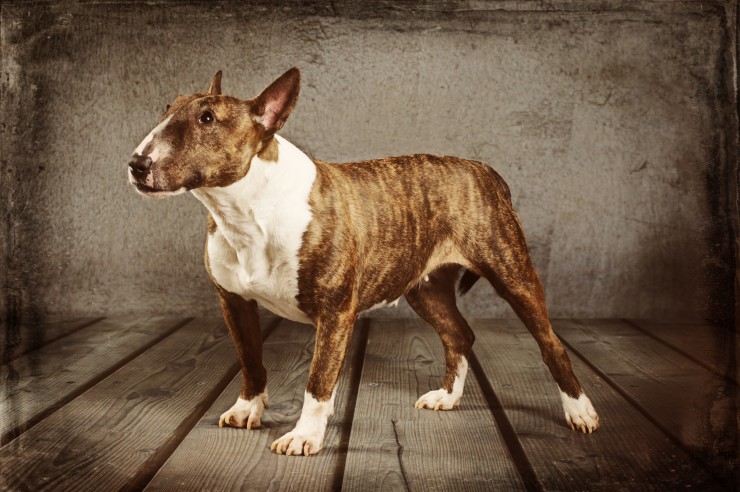
For a dog with food allergies, the otherwise simple act of eating his dinner can prove to be one that leaves him in misery from intestinal upset, itchiness, or even pain. Dog food allergies are a lot more common than dog owners might believe them to be. No one is quite sure what has caused the recent spike in dog food allergy diagnosis; it could be that it is a result of inbreeding, several environmental factors, or even simply because we are more aware of the signs of food allergies and know what to look for.
While it is true that dogs of all breed types and all ages can develop an allergy to one or more types of food, there are a few dog breeds that seem to be more prone to developing a true allergy to the food that they eat. Retrievers like Golden and Labradors, along with Spaniels and Bulldogs have been seen to be more likely to display the symptoms of an allergy. Allergic reactions to an ingredient will generally be seen to develop by the time that the dog reaches 3 years of age.
By understanding the types of food allergies that your dog could be susceptible to developing, you will be in a better position to modify his diet and to protect the health of your beloved four-legged family member.
Common Allergens For Dogs
Dog food allergies can be as a result of just about any ingredient that your dog has developed an allergy to; however, there are a few types of foods that your dog could be more prone to developing an allergic reaction to.
1. Wheat
2. Corn
3. Soy
4. Dairy
5. Eggs
6. Beef
7. Chicken
8. Lamb
Wheat and corn are two of the primary ingredients in many of the commercially available dog foods on the market today. They certainly do have their own health benefits, but they are also usually the primary suspect when a dog starts to develop the signs and symptoms of an allergy.
Allergic Reactions In Dogs
When it comes to determining what dog food allergies you may be facing with your pup, it is important that you understand the vital difference between a true allergy and intolerance. A true allergy will manifest symptoms that relate to an increase in itchiness, face rubbing, the development of hot spots, and even behavioral changes. Intolerance, on the other hand, might be exclusively related to gastrointestinal upsets. A combination of the two might be seen in a dog that has developed severe allergies, however.
The symptoms most often seen related to dog food allergies include the following:
1. Increased head shaking; damage to the ears of dogs with floppy ears may also be seen. Bleeding, swelling, and even some hearing loss could occur without effective treatment.
2. Hair loss that may be isolated to a few spots, sores might be located on the bare patches as your dog chews at those sites.
3. Itchy feet that your dog constantly licks or chews to the point of causing sores.
4. Face rubbing on anything that can provide him with a bit of relief.Itchy anal glands that cause your dog to constantly try to drag his rear end across your carpets are a common sign of dog food allergies.
Determining what ingredients your dog may be reaction to is the first step in finding a permanent solution for him. A complete elimination diet that offers him nothing but prescription dog food that is allergen free is often the first course of treatment recommended by veterinarians. Narrowing down the cause of dog food allergies in your dog is going to help you on the path towards a much happier, content, and healthier dog.
MyHypoallergenicDogFood.com provides information and advice for choosing the right brand of hypoallergenic dog food for dog food allergies.
 The Origins Of The Great Pyrenees Dog Breed
The Origins Of The Great Pyrenees Dog Breed
 Extraordinary Colours & Characteristics Of The Arabian Horse
Extraordinary Colours & Characteristics Of The Arabian Horse
 What To Look For When Choosing A Catnip Cat Toy
What To Look For When Choosing A Catnip Cat Toy
 Dalmatian Deafness And Colour Genetics
Dalmatian Deafness And Colour Genetics
 What are the active ingredients of Frontline plus
What are the active ingredients of Frontline plus
 How to build a functional chicken coops or a chicken house?
How to build a functional chicken coops or a chicken house?
 What Does The Dog’s Gall Bladder Do?
What Does The Dog
What Does The Dog’s Gall Bladder Do?
What Does The Dog
 How Dogs Indicate Their Possessive Tendencies
How Dogs Indicate
How Dogs Indicate Their Possessive Tendencies
How Dogs Indicate
 The Bichon Frise And Allergies
The Bichon Frise
The Bichon Frise And Allergies
The Bichon Frise
 Custom Made Chicken Runs are best for Your Chickens
Custom Made Chicken Runs are best for Your Chickens
Custom Made Chicken Runs are best for Your Chickens
Custom Made Chicken Runs are best for Your Chickens
 Common Reasons Why A Cat Might Refuse To Use A Litter Tray
Common Reasons Wh
Common Reasons Why A Cat Might Refuse To Use A Litter Tray
Common Reasons Wh
Copyright © 2005-2016 Pet Information All Rights Reserved
Contact us: www162date@outlook.com